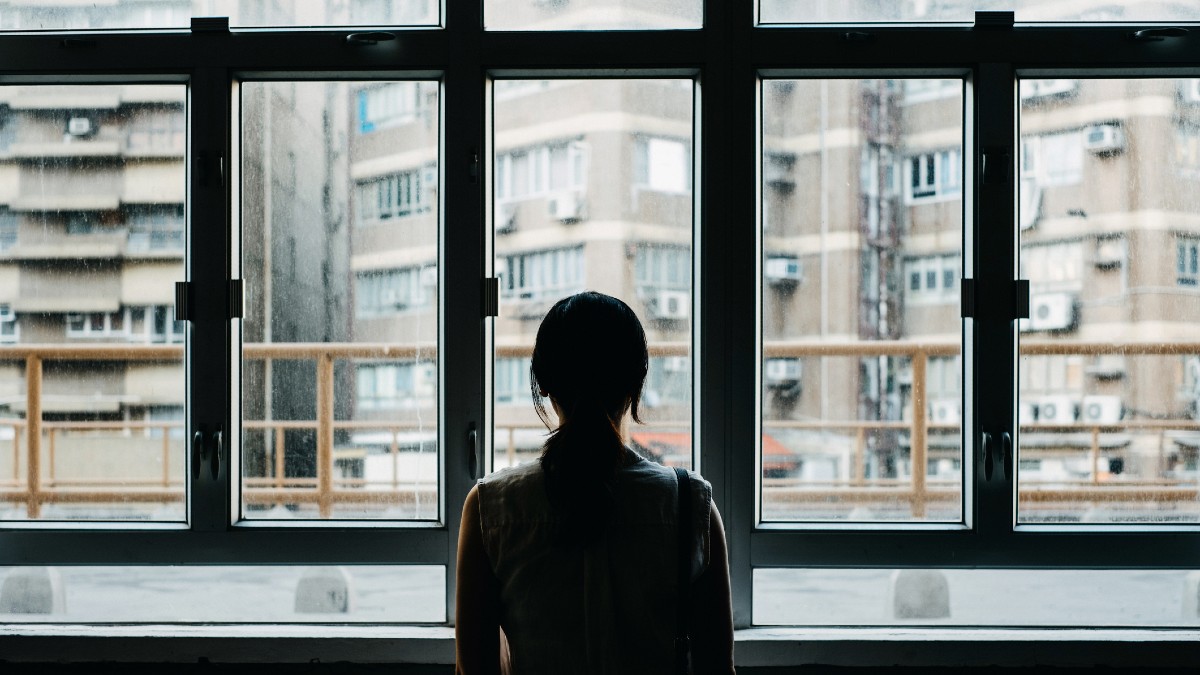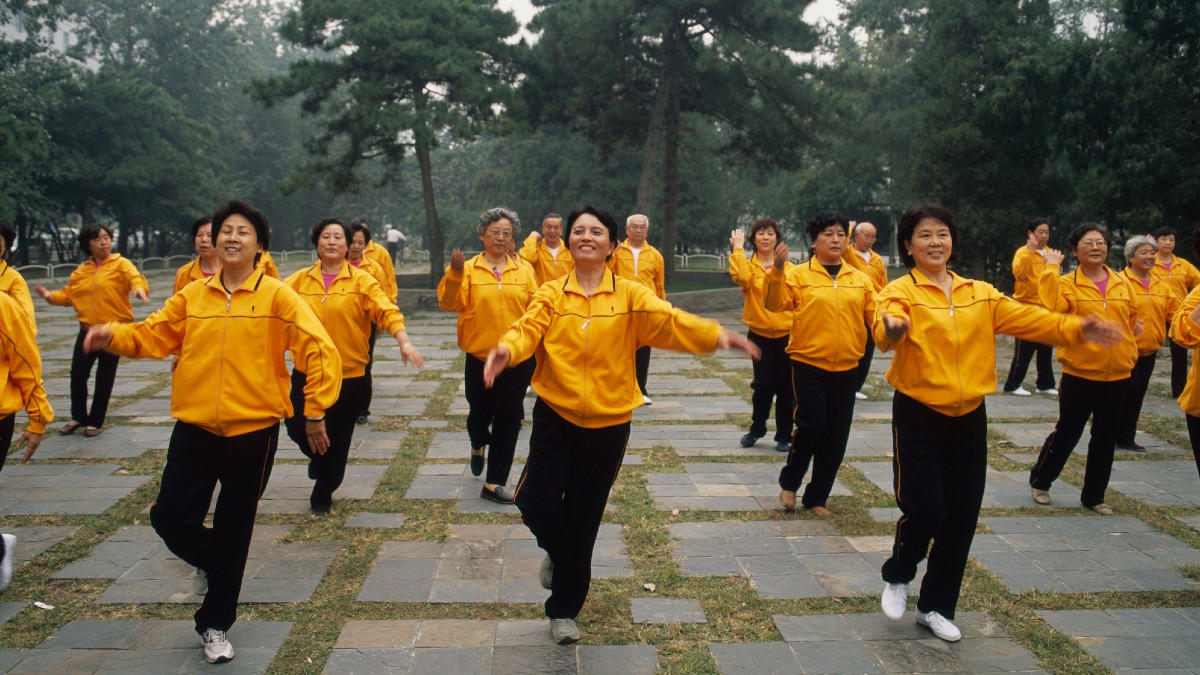China’s zero-PROPERTY policy: The one lockdown China’s Communist Party can’t face

Via Getty
Nobody seems particularly put out that China’s economy grew by just 0.4% in the second quarter compared with a year earlier.
Well. There’s a fair bit to worry about.
And it’s not like last year was much chop either, but when China’s National Bureau of Statistics (NBS) announced on Friday the lowest growth rate since the world’s second largest economy shrank by 6.8% in the COVID-intro first quarter of 2020, not too much blinking went on. No one seems to be sweating bullets.
Economists polled by Reuters, because they have time to do that, reckoned China would grow by 1% in the three months to June. The impenetrably complex and frustrating and unverifiable Chinese financial data app Win.d, reckoned 1.1%. Either way: everyone expected crap; they got crapper.
But that’ll be the reality of what happens when you apply the theory of shutting down every single moving thing in a city of 22 million for an impossible goal and the economic impact becomes simply too evident to hide. No amount of creative mathematics can rewind the Shanghai and other city lockdowns which made this China’s weakest quarter of the millennium – aside from that COVID-quarter back in 2020, when China fumbled at the bra strap of Wuhan’s early outbreak.
China has set its gross domestic product (GDP) growth target for 2022 at “around 5.5%”.

Friday’s wobbly old data may or may not have been entirely to script, so today the data adds to fears of a global recession as the Fed leads central banks in a death race to end resurgent inflation. Reuters even reckons these stalling numbers will only heap “more hardship on consumers and businesses worldwide as they grapple with challenges from the Ukraine war and supply chain disruptions.”
Bollocks.
The issue for China isn’t growth or growth targets.
It’s structural.
China really does appear to be vulnerable to this humungous property snot-bubble that’s been decades in the making. The most recent sighting of the monster’s true form is by far the most frightening – brazen flash-mob style protests by locally organised mortgage boycotters which have quickly spread.
About a week ago, these scenes erupted in Zhengzhou, Henan Province:
However the protest did not last long as the crowd was cleared out quickly by plainclothes police. Some protests were arrested, injured and beaten up.#TheGreatTranslationMovement #大翻译运动 #Henanbankcrisis pic.twitter.com/dGHe2bNg6t
— The Great Translation Movement 大翻译运动官方推号 (@TGTM_Official) July 11, 2022
Refusing to pay any more for unbuilt homes, protestors gathered, probably hoping not to be beaten, but certainly bracing for it. But it’s the plain clothed police/thugs which are probably most concerning.
Pass me my mask
No one wants their name out the front of this one.
Last week, off-the-plan buyers of more than 250 mega-properties in almost 100 cities have come manifesting out of internet forums to collectively say screw you jack to agents demanding mortgage payments for the gazillions of unfinished, pre-sold apartments .
Like some insane advertising catchphrase: – Where the building has stopped, but not the upfront payments.
The mum and dad investors are promising that unless construction gets cracking, no-one’s paying another cent – 种瓜得瓜, (zhòng guā dé guā: literally, “plant a melon, get a melon”, but translates better into “you reap what you sow”.)
My cracking Mando aside, until someone nuts a Communist Party official, authorities won’t be too bothered by that.
If anything, zero-COVID has shown that more than ever they can crush injustices with absolute confidence. But what might be bothersome, even disturbing for officials, is that residential dwelling values are carking it again. The stats people make June the 10th straight month of home value declines.
It’s quite easy to beat people for falling victim to a system, but not even provincial government goons can scare the safety back into Chinese property and its inconceivable debts.
It will be keeping Premier Li Keqiang and his State Council up nights. Tasked with leading relief strategies aimed at securing stability in a worsening crisis, the highly capable Premier could pay for his popularity by taking the fall for a Chinese property reckoning 20 years in the making.
I think she might work for the other team, but Rebecca Choong Wilkins does outstanding work on tracking Chinese debt. Probably worth following.
Homebuyers in 22 Chinese cities are refusing to pay mortgages on stalled projects. Banks, already grappling with developer defaults, now have to brace for homebuyer defaults. With stop-start lockdowns, construction delays are set to worsen. 4/6https://t.co/SerKpK36eQ pic.twitter.com/PcwkMTJpbb
— Rebecca Choong Wilkins 钟碧琪 (@RChoongWilkins) July 14, 2022
As part of Friday’s fulsome data drop, China’s National Bureau of Statistics also revealed that new home values across more than 66 urban centres dropped 0.1% in June from the previous near 0.2% month, May, when they sank 0.17%. Home sales fell from a year earlier, although the pace of declines eased.
China’s hamstrung GDP – an injury sustained in the recent punitive Big Brother-run lockdowns under President Xi Jinping’s zero-Covid inspiration – has perfectly derailed in debt real estate developers’ orders to get out of debt. My word though, it’s been worse for the millions who’ve bought undeveloped real estate from them.
It was already far-fetched calling these real estate firms property “developers” but in the wake of Beijing’s regulatory crackdown in response to the still unresolved collapse of Evergrande, developers have been warned to pull their heads in. But they simply don’t know how.
Now they’re not building, but people are still buying into off-the-plan property before prices keep rising.
There’s something of a liquidity crisis but missed payments on offshore high-yield USD bonds just aren’t the problem they used to be. That problem’s been kicked upstairs and they have developers’ backs on that side of the ledger.
China’s $2.4 trillion real estate market is looking a lot like an experiment no-one wants to put over the bunsen burner. Applying even a little heat would be the right catalyst, but what this lumbering juggernaut might transform into is anyone’s guess.
Contagion is the watchword in China right now, and without reform, this bad boy must be spreading like – well, some kind of Omicron-variant, into the financial system.
Zero-PROPERTY
This might be what the State Council and China’s army of far-from-useless economic academics need to start looking into.
The state has already proven how adept it is at amputating the odd limb for the sake of the body. But this is one cut which goes far deeper than being locked in your home for a month.
This is about getting locked out of your home forever.
All in all, what it points to is a financial mess, but whereas slowing GDP can be spun as a humble government’s honest self-criticism, these property fatbergs are a disgrace. They expose banks, and much more importantly a potential weak point to the social stability which is the Party’s raison d’etre – it’s very legitimacy.
There’s already been a run on cash at a few provincial banks. And that’s not a good look if you’re looking to convince everyone your leadership alone – damn the rules – needs to be swung at the Olympian Communist Party gathering later this year.
UNLOCK INSIGHTS
Discover the untold stories of emerging ASX stocks.
Daily news and expert analysis, it's free to subscribe.
By proceeding, you confirm you understand that we handle personal information in accordance with our Privacy Policy.








